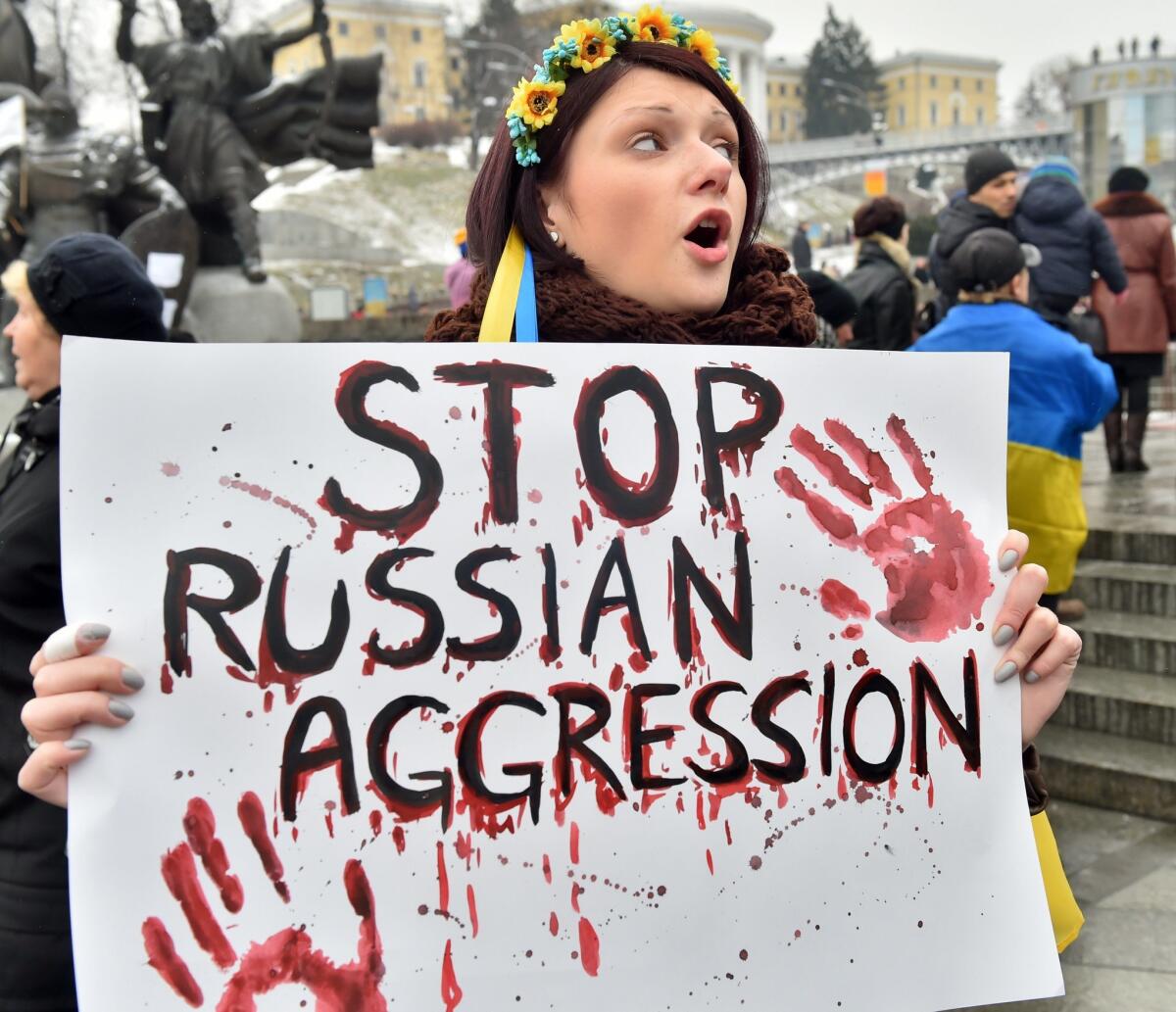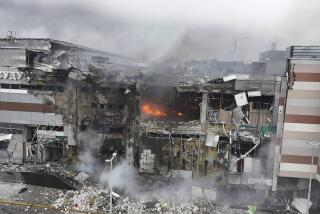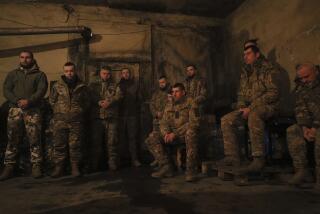Op-Ed: The West can’t placate Putin; it needs to help Kiev fight back

As Western countries respond to the resumption of all-out war in Ukraine, they must ensure that the driving force behind the hostilities — Moscow — pays a greater cost for the rising civilian death toll. European Union foreign ministers are set to meet Thursday to discuss deepening sanctions against Russia. However, if the United States and its allies are serious about supporting Ukraine’s freedom to determine its own future, they must agree on a more comprehensive approach, including the provision of effective military aid to the Ukrainian military and the training to use it.
If there were any illusions about who is fueling the violence that’s laying waste to the regions of Donetsk and Luhansk in eastern Ukraine’s Donbas coal basin, there should be none now. Russia essentially did nothing to honor a cease-fire it signed with Ukraine and separatist leaders in Minsk, Belarus, in September. Now all pretense is gone. The separatists began advancing along the conflict’s front lines last week after sightings of what NATO calls sophisticated Russian weapons systems. And although many question Ukrainian President Petro Poroshenko’s claim that Moscow has deployed as many as 9,000 troops in Donbas, there’s ample evidence that at least some Russian soldiers are present.
There’s little doubt that Russian agents used propaganda and provocations to incite previously peaceful residents in Donbas to violence last year, or that the Russian military saved the rebels during a Ukrainian offensive last summer, or that the separatists couldn’t sustain their campaign without help from Moscow. Nevertheless, Russian President Vladimir Putin has paid negligible military costs thanks to the nature of the conflict.
The crucial fact is that Putin’s overriding goal isn’t a military victory in eastern Ukraine, it’s to maintain pressure on the West, escalating the conflict while dividing Western opinion. In the Kremlin’s warped logic of equivalence, sticking it to Western countries shows Putin to be restoring Russian power, which drives his high approval ratings and distracts the population from the corruption and authoritarianism on which his regime relies. For that, he needs only an ongoing sabotage campaign against Ukrainian statehood.
Some of those who have opposed Western sanctions may use the rebels’ new offensive as another occasion to argue that punishing Putin unnecessarily provokes him, risking economic catastrophe and squandering the possibility of Russian cooperation over Syria, Iran and other strategic issues. In fact, weakening sanctions — which prevent Russian banks and firms from raising funds on international markets — would have little effect on a ruble crisis that is driven by a drop in oil prices. Easing sanctions would instead reward Putin for ratcheting up the fighting.
U.S. officials are right to discuss tightening sanctions and other economic measures. U.S. leadership will also be crucial for ensuring that European officials boost existing measures at this week’s meeting. Britain is also urging the ministers to consider blocking Russian access to the international banking transaction system known as SWIFT. Although imperfect, sanctions will put political pressure on the Kremlin in the long term.
But more must also be done because as the Russian economist Konstantin Sonin told the New York Times, Western sanctions aren’t enough: Russia “is at war with the United States, so why would you bother about the small battleground, the economy?”
Ukrainians are dying. Even before the rebels began their latest offensive, a rocket attack almost certainly launched by pro-Russia separatists killed 13 civilians on a commuter bus at a Ukrainian military checkpoint in the town of Volnovakha. Shells killed another 13 people at a bus stop in Donetsk. Last weekend, more rockets left at least 30 people dead and more than 100 injured in the Ukrainian-controlled port of Mariupol. The United Nations says that more than 5,000 people have been killed and more than 1 million displaced since the rebels began their offensive last spring.
Now Washington should fulfill President Obama’s State of the Union promise to support Ukraine against Russian aggression by providing lethal military aid that would target Russian weapons. Arguments that arming the Ukrainians would only fuel the conflict don’t take into account that the hostilities are being ratcheted up by a Russian leader who already invents claims about Western involvement as he goes along, time and time again pushing his advantage until confronted.
Of all the consequences of Putin’s actions in Ukraine — a new cold war with the West, the spread of a virulent nationalism, the threat to Ukrainians’ political future — Western countries must focus on the most pressing issue of the daily killing and suffering of civilians. Failing to equip the Ukrainian military to combat the rebels would only prolong the conflict, deteriorate European security and empower Putin in what is clearly a proxy war between Moscow and Kiev.
Gregory Feifer’s book “Russians: The People Behind the Power” will be published with a new afterword in paperback in February.
Follow the Opinion section on Twitter @latimesopinion
More to Read
Start your day right
Sign up for Essential California for news, features and recommendations from the L.A. Times and beyond in your inbox six days a week.
You may occasionally receive promotional content from the Los Angeles Times.






